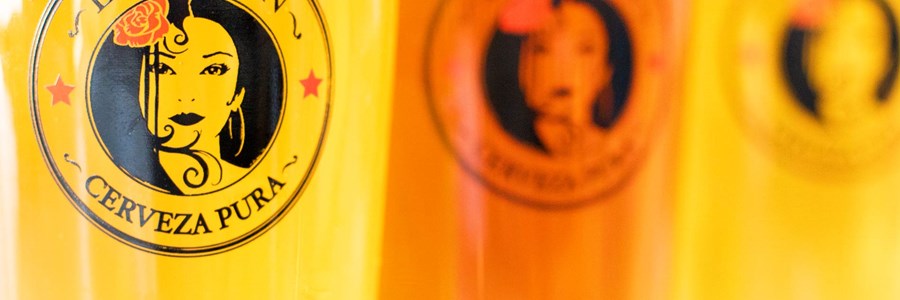Beer as part of the Mediterranean Diet

Wiki Spanish Food editorial team report of beer
 The Mediterranean Diet is the primary example of healthy, balanced eating. However, more than an eating habit, it is a characteristic of countries along the Mediterranean coast (Spain, Portugal, France, Italy, Greece and Malta). In fact, the Mediterranean Diet Foundation defines it as a "balanced lifestyle" based on a rich cultural heritage that "includes recipes, cooking methods, celebrations, customs, local products and various human activities".
The Mediterranean Diet is the primary example of healthy, balanced eating. However, more than an eating habit, it is a characteristic of countries along the Mediterranean coast (Spain, Portugal, France, Italy, Greece and Malta). In fact, the Mediterranean Diet Foundation defines it as a "balanced lifestyle" based on a rich cultural heritage that "includes recipes, cooking methods, celebrations, customs, local products and various human activities".
The Diet is so important that UNESCO's Intergovernmental Committee added it to the Intangible Cultural Heritage List in 2010 and established International Mediterranean Diet Day on November 13th. The same UNESCO committee believes that certain ingredients are indispensable in a diet, such as olive oil, grains, fresh fruits and vegetables, nuts, legumes, a moderate proportion of meat, fish and dairy products. As a result, the creation of International Mediterranean Diet Day ensures that it is preserved and passed on, while protecting its historical and cultural legacy.
The Mediterranean Diet has also led to the inclusion of many of the dietary patterns we follow today. One example is beer, which is created through the fermentation of ingredients included in the diet, such as grains. In fact, the Spanish Society of Community Nutrition (SENC) includes fermented beverages, such as beer, in its Healthy Food Pyramid. The Mediterranean Diet Foundation includes moderate consumption of fermented beverages among the recommendations in the Mediterranean Diet Pyramid. This low-grade alcoholic drink could, therefore, be part of a healthy diet since it contains several nutrients from natural ingredients, such as B vitamins, minerals, fiber, polyphenols and natural antioxidants, which make it especially nutritious.
According to the study, "Relationship between moderate beer consumption, nutritional quality of diet and eating habits" by Dr. Rosa M. Ortega, Nutrition Department Chair of the School of Pharmacy at Madrid's Complutense University, and Dr. Lluís Serra-Majem, Preventive Medicine and Public Health Chair at the University of Las Palmas de Gran Canaria and President of the Spanish Academy of Nutrition, people who consumed beer moderately during the study had better eating habits, a more appropriate body composition, and better HDL (good cholesterol) levels and lower LDL (bad cholesterol) compared with non-beer drinkers.

Dr. Rosa María Ortega said that, “In view of the results of the study, beverages with low alcohol content, such as beer, can be included as part of a balanced diet such as the Mediterranean Diet, provided that they are consumed in moderation (two or three beers per day for men and one or two for women)".
Moreover, Dr. Lluís Serra Majem says that “There are far fewer calories in beer compared with other alcoholic beverages, since 200 mL has just 84 kcal. Daily beer consumption accounts for a very small amount of the recommended daily calorie intake, which is around 2,000 for women and 2,500 for men."
The diet also includes social relationships as part of the eating pattern, the pace of meals, the way food is prepared and consumed, the way work is completed and with what kind of schedule, free time, and having an active lifestyle. In short,beer and the Mediterranean diet have always had ties to a philosophy of life that defines culture and our geographic identity.
Source: Wiki Spanish Food
